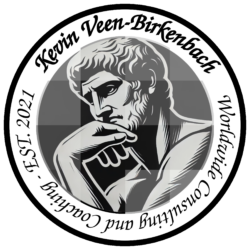During my conversations with potential investors from China, the United States, and Brazil, one thing became increasingly clear: Germany’s current innovation programs are not built for the realities of global competition. Initiatives such as SPRIND and EXIST, although well-intentioned, are deeply rooted in academic structures, heavy documentation, and predefined evaluation processes. They are excellent tools for research, universities, and early technical exploration — but they provide no practical support when founders are negotiating with international investors who expect speed, flexibility, clarity, and strategic alignment.
Germany has developed strong funding instruments for knowledge creation, yet almost none for scalable entrepreneurship. There is too little risk capital, too much administrative overhead, and far too few incentives for entrepreneurs who want to build companies that could genuinely change the world. SPRIND and EXIST help teams publish papers and build prototypes, but they do not help founders close deals with foreign investors, reach global markets, or keep groundbreaking technologies in Germany. In fact, their rigidity often slows teams down precisely when agility and rapid execution are needed most.
This is the core issue: Germany promotes knowledge, not impact.
We create excellent research, but not the environment in which ambitious founders can transform that research into globally competitive companies. As a result, innovators with truly transformative ideas often leave Germany — not because they want to, but because the system gives them no alternative. The domestic environment pushes them out, while the global market pulls them in.
Germany’s innovation programs are important for academic progress, but they do not produce economic strength. They generate knowledge, not global market leaders. And if we want to retain emerging technologies — such as sovereign cloud infrastructure, open-source automation, AI safety tooling, or decentralized architectures — we need less bureaucracy and far more courage to fund high-risk, high-impact ventures.
Geopolitical Crises as a Catalyst for European Technological Leadership
Today’s geopolitical crises — from supply chain disruptions to energy instability and the growing competition between digital superpowers — also present a historic opportunity for Europe. For the first time in decades, the global environment favors nations capable of building sovereign digital infrastructure and reducing dependency on external powers. Europe now has the chance to create technologies that not only strengthen its own autonomy but also challenge or even replace American Big Tech.
But this opportunity can only be seized if Europe fundamentally shifts how it allocates capital. We must move away from the familiar pattern of structural conservatism, where funding is spread thinly across traditional sectors such as agriculture and the automotive industry — sectors that often receive money not for innovation, but to preserve outdated structures. Incremental updates to old industries will not prepare us for the future.
Instead, we need targeted, bold, and transformative funding programs that prioritize:
- renewable and decentralized energy systems
- sovereign, open-source digital infrastructure
- AI safety and transparent, auditable algorithms
- sustainable, modern agriculture
- automation technologies and resilient hardware
- cloud independence and true data ownership
- green industrial transformation
- next-generation cybersecurity
Technology must become a central pillar of Europe’s economic strategy — not a side project, not a subsidy for legacy sectors, not an afterthought. If we continue investing in the past, we will be overtaken by every major region of the world. But if we redirect capital toward the areas that genuinely move society forward — energy independence, open-source innovation, automation, AI safety, and sovereign cloud — Europe can become a global leader once again.
Software that enables digital sovereignty is not just a technological advantage; it is a geopolitical necessity. And if we act decisively now, it can become the foundation for European market leadership in the decades ahead.
Strategic Autonomy in the Primary and Secondary Sectors
This does not mean abandoning our foundational industries. On the contrary, any serious strategy for European resilience must preserve autonomy in the primary sector (food, raw materials) and secondary sector (core manufacturing). Europe must remain capable of feeding itself and producing essential goods without being dependent on China, Russia, or rising autocracies — including the United States.
However, this autonomy must be modern, not nostalgic. Public investment should not exist to protect outdated technologies. It must exist to strengthen long-term independence. That means:
- green, autarkic, decentralized energy production
- sustainable and regenerative agriculture
- a complete transition from fossil fuel combustion to clean power
- industrial production powered by wind, solar, hydrogen, and circular material cycles
Europe has enormous potential in wind and solar energy — far more than we utilize today. If deployed strategically, these resources could not only meet our own energy needs but also enable new industries, support electrified manufacturing, and empower sovereign digital infrastructure at scale.
Strategic independence means building the internal resilience necessary to remain free — economically, politically, and technologically — even in turbulent times. And that resilience can only be built through innovation, not through holding onto the past.
The Path Forward
We have the knowledge. We have the resources.
What we lack is the political courage and financial strategy to convert research into globally competitive companies. The geopolitical window of opportunity is open — but it will not stay open forever.
If we want to shape the future rather than be shaped by it, we must invest in the sectors that truly matter:
- digital sovereignty
- open-source ecosystems
- renewable energy
- sustainable agriculture
- resilient automation
- decentralized infrastructure
- AI safety and transparency
- next-generation manufacturing
The future belongs to those who build it.
And Europe must decide — now — whether it wants to build or merely observe.


Leave a Reply